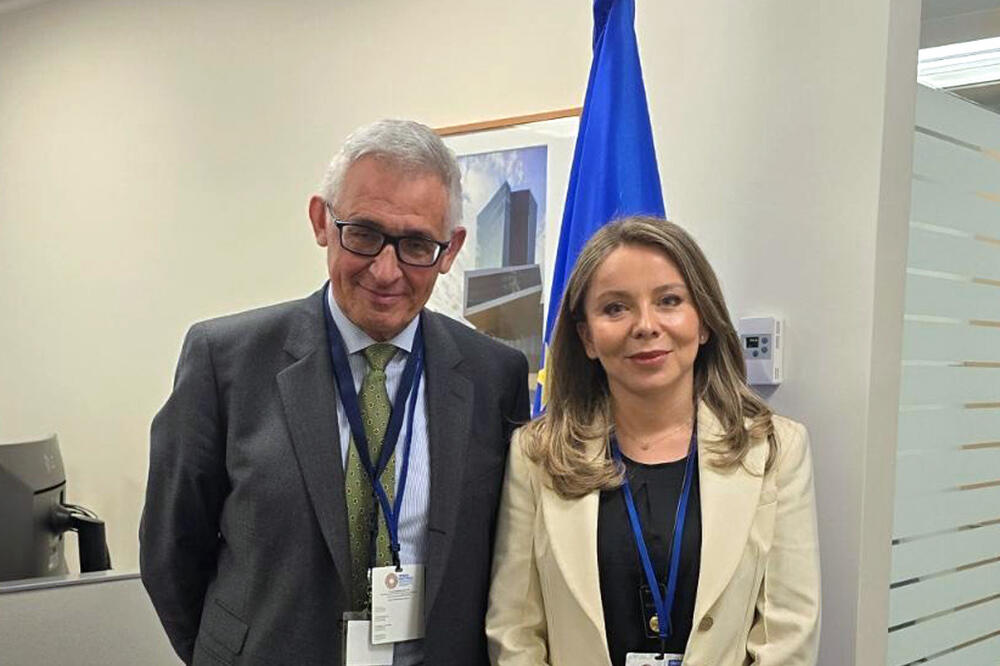The European Central Bank supports Montenegro and other countries in the region in their approach to European Union standards, said Piero Cipollone, a member of the Executive Board of the European Central Bank (ECB).
He said this at a meeting with the Governor of the Central Bank of Montenegro (CBCG), Irena Radović, who is on a working visit to the United States of America (USA).
At the meeting, as stated in the statement of the CBCG, the modernization of the payment systems of the countries of the Western Balkans was discussed, as one of the preconditions for their integration into the European Union.
"The importance of establishing a national instant payment system in the context of creating conditions for Montenegro's accession to TIPS (Target Instant Payment Settlement), and then integration into SEPA, i.e. accession to the single euro payment area," was added in the announcement.
Radović, as stated, thanked Cipolone for the support provided by the ECB to the CBCG on its path to membership in the European System of Central Banks, "which is reflected through regular high-level dialogues, as well as through numerous technical cooperation programs that helped the CBCG build and strengthen its institutional, regulatory and administrative capacities."
On the first day of her stay in Washington, Radović participated in the panel of governors organized by the World Bank, on the topic of the efficiency of cross-border payments.
The CBCG stated that the panel stated that efficient cross-border payments are essential for foreign trade, direct foreign investments and smooth transfer of remittances, and that, as stated, they represent an important factor in stimulating economic growth.
They added that, however, according to panel participants, cross-border payments are still "expensive, slow and have a limited range
Radović pointed out that improvements in domestic and cross-border payments can have significant positive implications for the economy of a country, "especially when it comes to small and open countries like Montenegro, strongly focused on foreign trade."
"Bearing in mind the above, as well as our strategic goal - to join the European Union as soon as possible, the CBCG has initiated numerous activities in terms of improving the regulatory framework and modernizing payment systems", said Governor Radović and added that Montenegro is the first EU candidate country that has fully harmonized its regulations in the field of payment transactions with the EU legal acquis. in just a few seconds and at an extremely low price," said Radović.
The CBCG stated that the panel participants exchanged experiences on national strategies and discussed the future agenda for the improvement of cross-border payments, "the fulfillment of which will ensure a more efficient and resilient financial ecosystem, which will bring benefits to citizens, the economy and the entire economy."
Bonus video:




